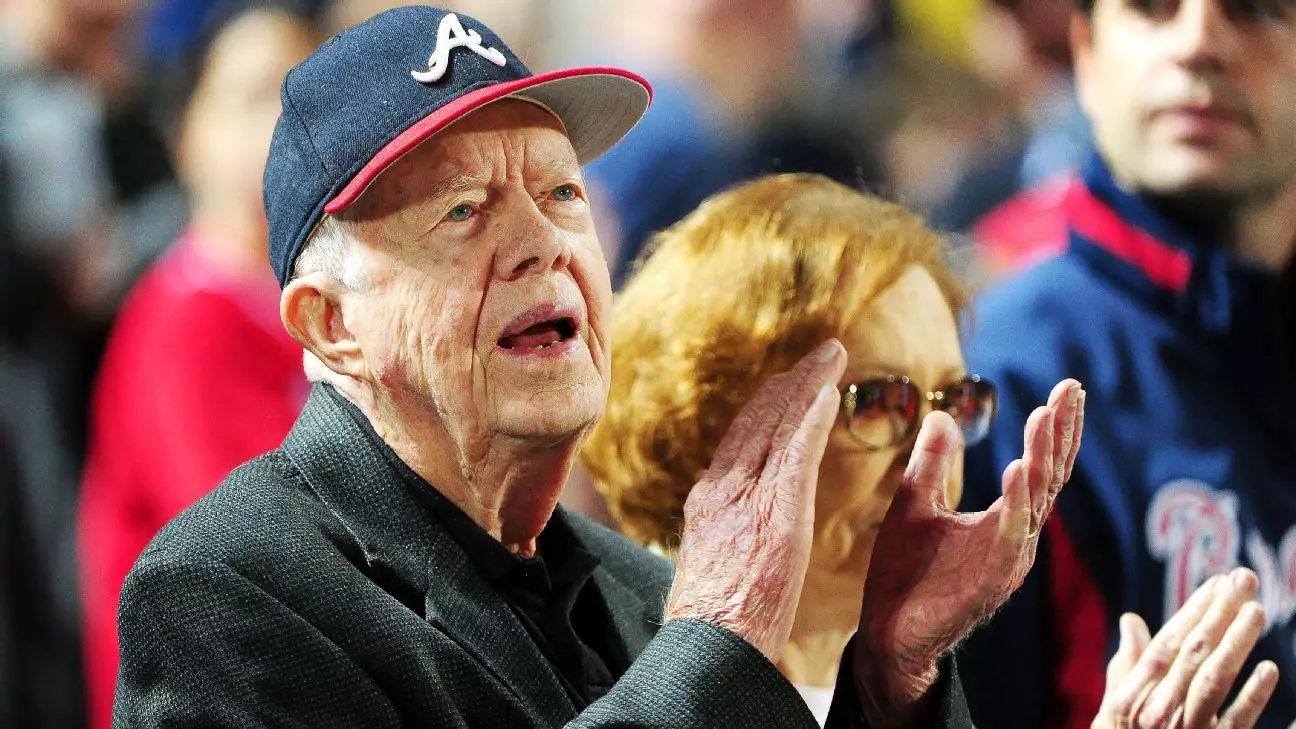The recent passing of former President Jimmy Carter at the remarkable age of 100 has left an indelible mark on the hearts of many Americans and people around the world. Carter’s death not only signifies the end of a century-long life but also a pivotal chapter in American political history. As the longest-living president in U.S. history, Carter’s legacy extends far beyond his years in the White House. Born James Earl Carter Jr., he was a man of many hats: a farmer, naval officer, state senator, governor, humanitarian, and most importantly, a quintessential servant leader.
A Life Marked by Service
Jimmy Carter’s remarkable life stands as a testament to dedication and perseverance. Before ascending to the nation’s highest office from 1977 to 1981, Carter served in the U.S. Navy for seven years after graduating from the Naval Academy. Upon returning to Plains, Georgia, he took over the family peanut farm, where he began to develop his character as a compassionate community member and a hardworking individual.
Once in politics, his roles as a Georgia state senator and governor paved the way for his presidential election. His journey from local politics to the presidency is reflective of his belief in grassroots movements and local issues, which remained central themes in his later endeavors as a humanitarian. It was during his presidency that he faced monumental challenges, including economic turmoil, energy crises, and notable foreign policy issues like the Iran hostage crisis.
Humanitarian Efforts Beyond Politics
One of Carter’s greatest legacies lies in his extensive post-presidency work through The Carter Center, which he founded in 1982. The Center’s mission encompassed promoting democracy, observing elections, enhancing global health, and facilitating peace negotiations—all efforts that seamlessly aligned with his commitment to human rights. His dedication to humanitarian causes earned him the Nobel Peace Prize in 2002, a well-deserved accolade for a man who spent his life advocating for peace and justice.
Carter not only focused on international concerns; he also championed local initiatives, partnering with Habitat for Humanity for over three decades. His hands-on approach to building homes for low-income families exemplified his belief in every individual’s dignity and right to a safe living environment, thus transforming communities one home at a time.
Beyond his political and humanitarian pursuits, Carter was also an avid sports enthusiast. A lifelong fan of the Atlanta Braves, his presence at sporting events was not just a display of fandom; it was an embodiment of community spirit. His participation in various sports, from track and basketball in high school to cross country in the Naval Academy, highlighted his commitment to fitness and well-being, values he carried throughout his life.
Carter’s personal life was equally noteworthy. His deep bond with his wife Rosalynn, whom he married in 1946, served as a foundation for both his personal and professional endeavors. Their partnership was celebrated in public spaces, capturing moments of joy at Braves games and community events. The couple raised a family of three sons and a daughter, instilling in them values of service and commitment to social justice.
Carter’s presidency was not without its controversies. His decision to boycott the 1980 Moscow Summer Olympics in response to the Soviet Union’s invasion of Afghanistan created ripples through the world of international sports. While this decision drew criticism at the time and resulted in retaliatory boycotts in 1984, Carter reflected on it in his later writings, acknowledging the difficulty of that choice while firmly believing in the moral implications behind it.
Similarly, his economic policies faced challenges arising from the oil crisis and inflation. Critics often scrutinized his administration’s effectiveness in managing these issues, leading to a complicated public perception of his presidency. Yet, Carter’s ability to own these challenges and learn from them speaks volumes about his character and leadership style.
A Legacy of Hope and Resilience
As the world reflects upon the life of Jimmy Carter, it is essential to recognize the lessons he imparted through his unwavering commitment to service, peace, and community involvement. His journey from a peanut farmer in Plains to the highest office of the land gives hope to the belief that ordinary individuals can enact significant change. While Carter’s physical presence may be gone, his spirit of compassion, humility, and resilience will continue to inspire generations to come. His legacy is not just a story of a president, but a celebration of humanity—an invitation to serve one another and create a better world.

